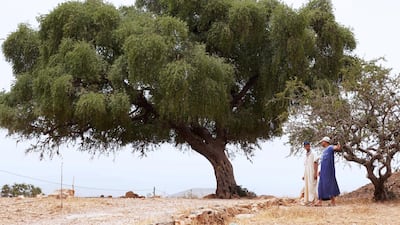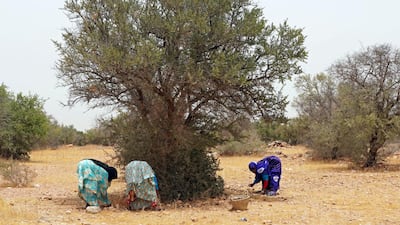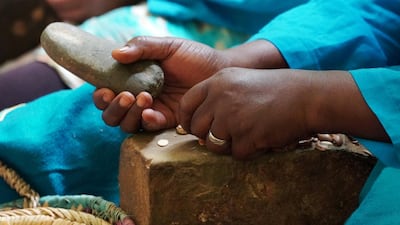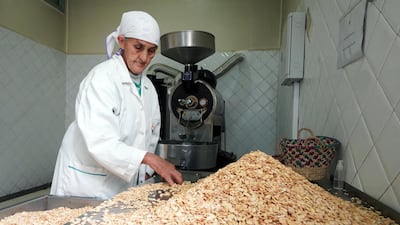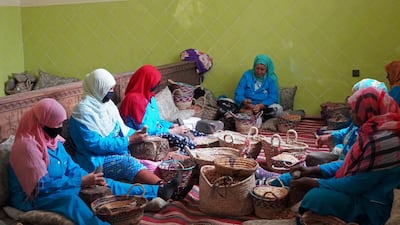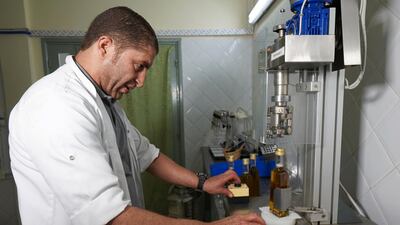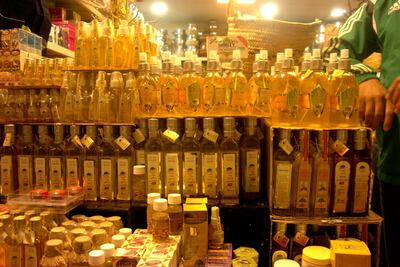Using oils for cosmetic purposes is a slippery business. There is much confusion about how much one should use, at what time of year, whether they work best in combination with other products and which skin types benefit most from them. It's a relief, then, to hear someone in the know say: "There are no don'ts when it comes to argan oil. You can swim in it."
Ollia Tzarina, founder and chief executive of organic skincare brand Bio Lab Exotique, is obviously a fan of the “super-clean” Moroccan argan oil that is often referred to as liquid gold.
Scroll through the gallery above to see how argan oil is extracted and retailed at the Women's Agricultural Cooperative Taitmatine in Morocco.
How to use argan oil
What sets argan apart from other essential oils (think lavender, rosehip, tea tree) is that it can be used in its original, most natural form and does not require a stabilising carrier oil. Plus, its stable composition means that a product made from pure argan requires no parabens or preservatives.
It is simply an all-natural product that happens to be loaded with vitamin E (an effective antioxidant) and the essential fatty acids that are responsible for dermatological health – without and within. It also contains squalene, which lends skin plumpness and keeps it looking young and unmarked.
Argan is classified as a “lightweight dry” oil, which means it soaks into the skin and scalp easily without clogging the pores or leaving a greasy residue.
Pro tip: Beware of argan products that are mixed with mineral oils and steer clear of cheaper products – argan is expensive, but then you only need to use a little at a time.
Argan oil for skin
“Moroccan argan oil is a vitamin-E-rich, multi-purpose beauty oil. It nourishes your skin and helps protect it against daily environmental factors such as the weather, which may affect its vitality,” says Deborah Thony from Neal’s Yard Remedies.
Argan has been successfully tested and proven to regulate the body's production of sebum, the chemical that is the main cause of adult acne that mostly breaks out on the chin, neck and upper back. The antioxidant, anti-inflammatory vitamin E then kicks in to remove damaged cells, causing acne marks to fade, as well as to aid the regrowth of new cells, rapidly forwarding your anti-ageing agenda.
“Because argan gets absorbed readily and balances sebum production, so it can suit even oily skin types,” says Mairin Cipolla, marketing director at Kahina Giving Beauty.
Pro tip: If you have hyper-oily skin, a combination of argan with either lotus extract or tea tree oil will cut through the grease especially in the UAE's hot and humid months (however, the price of your final product will skyrocket accordingly).
Argan oil for hair
The fatty acids in argan make it a natural conditioning agent and it can prevent dry and frizzy locks. Because it’s a lightweight oil, it can be used as a serum to give your mane some shine, in a healthy, rather than greasy way.
The oil’s natural linoleic and oleic acids also act as a barrier against the Sun as well as the damaging effects of chemical hair dyes.
While there is no conclusive research on the connection between argan oil and hair regrowth, anecdotal reviews suggest pure argan oil can help reduce hair fall.
Pro tip: Given its moisturising properties, argan is best used as a leave-in conditioner and styling product.
How to apply argan oil
As with most lotions and potions, rubbing is a no-no. Instead, says Cammie Cannella, Kiehl's global vice president of education development, “use a gentle patting motion to ensure even application on the skin, and press – don't spread – a small amount into sections of your hair”.
Pro tip: Instead of wasting the excess oil on your hands, just rub it into your cuticles and nail bed, or gently swish your fingers over your eyelashes.
